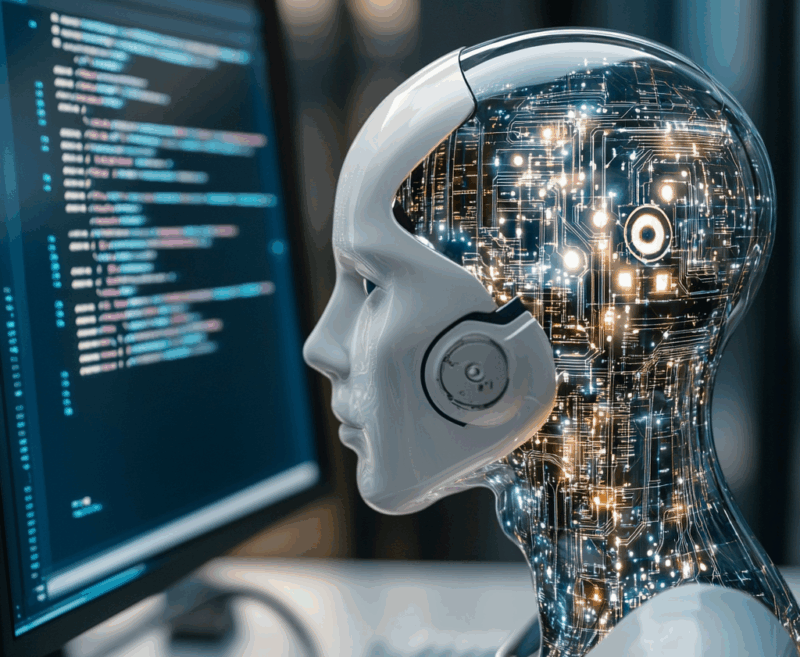We’ve hit a strange point in software development. According to Satya Nadella, around 30% of the code written at Microsoft today is generated by AI and roughly a third of it gets accepted. On paper, that looks like progress. In reality, it raises a question: if machines are writing more and more of our code, are we still learning how to do it ourselves?
It’s not a rhetorical question. It cuts straight into how we train developers, build products, and shape the future of tech. And in the rush to let AI handle more of the work, there’s a risk we’re quietly letting go of the skills that made this industry what it is.
The rise of code we didn’t write
AI tools aren’t new, but their role has changed fast. GitHub Copilot can now finish your thoughts before you do. Other tools debug your app without waiting for your input. What used to be “support” is now more like a co-pilot, and in some cases, it’s flying the whole thing.
It makes sense why so many teams are adopting it. Faster delivery, in some scenarios fewer bugs, less boilerplate. But there’s a line between saving time and giving up ownership. And that line feels blurrier every month.
When using replaces learning
For decades, learning to code meant figuring things out the hard way. Breaking stuff. Starting over. Solving problems with logic and persistence. That’s where a lot of developers built their confidence, I am one of them, line by line.
Today, things are shifting. Newcomers are sometimes dropped straight into AI-assisted environments. Instead of learning how to build, they’re learning how to prompt. It’s a different skill, I am not sure is necessarily a bad one, but it changes the foundation of what it means to be a software developer.
The real concern? When the code works, but nobody knows why. When a junior dev sees a block of AI-generated logic and shrugs, trusting it must be fine. That’s not development, it’s outsourcing understanding.

Why it matters more than ever
Let’s not kid ourselves, AI’s not going away. It’s already reshaping how we work, and it’s going to become even more baked into our toolchains. But we still need people who understand what’s going on under the hood.
Because here’s what happens when we stop paying attention:
Quality suffers. AI is good at pattern-matching. But handling edge cases? Making judgment calls? That’s still on us. Ethics get murky. A machine doesn’t think about bias, accessibility, or unintended harm. That kind of thinking has to come from humans. Innovation slows down. AI can remix what already exists. But new ideas? Bold design choices? Those still come from human minds.
There’s also a long-term risk. If only a small group of people can still read and reason about code, we lose transparency. And once that happens, who’s left to challenge or improve what these tools generate?
It’s not a fight. It’s a partnership.

This isn’t about throwing out AI tools or pretending they’re the enemy. Far from it. Used well, they free us up from the boring parts and help us focus on the work that actually needs a human brain.
But we have to keep the fundamentals alive. Developers, especially the next wave, should learn both how to code and how to work with AI. Not one or the other. They should be curious enough to question what the machine suggests and confident enough to fix it when it’s wrong.
If we do this right, AI becomes an amplifier, not a replacement.
What’s at stake isn’t just code
This moment is bigger than productivity gains. It’s about the kind of engineers we’re becoming and the kind of software we’re going to build in the years ahead.
We can embrace AI. We should. But not at the cost of forgetting how things work. Because if we stop learning how to build, we’ll eventually stop being able to fix or even understand what we’ve built.
And when that happens, we don’t just lose control, we lose the craft.
We should use the tools. We should stay curious. And above all, we should not forget how to code.

